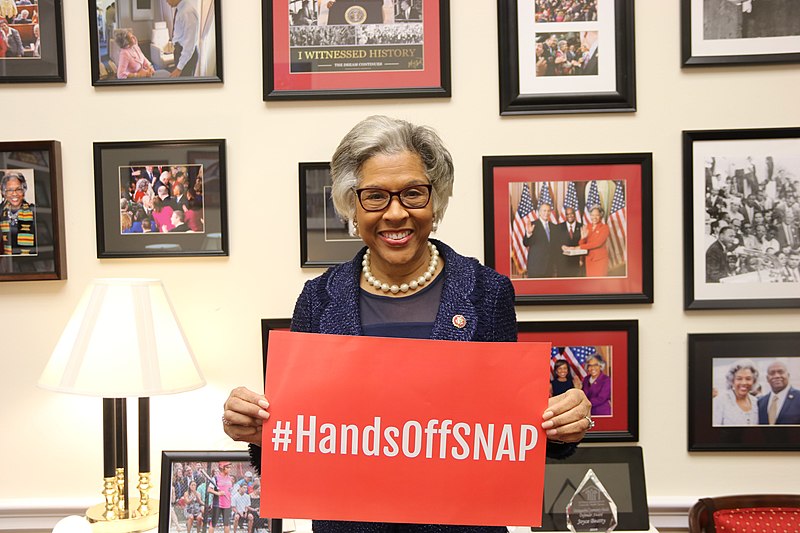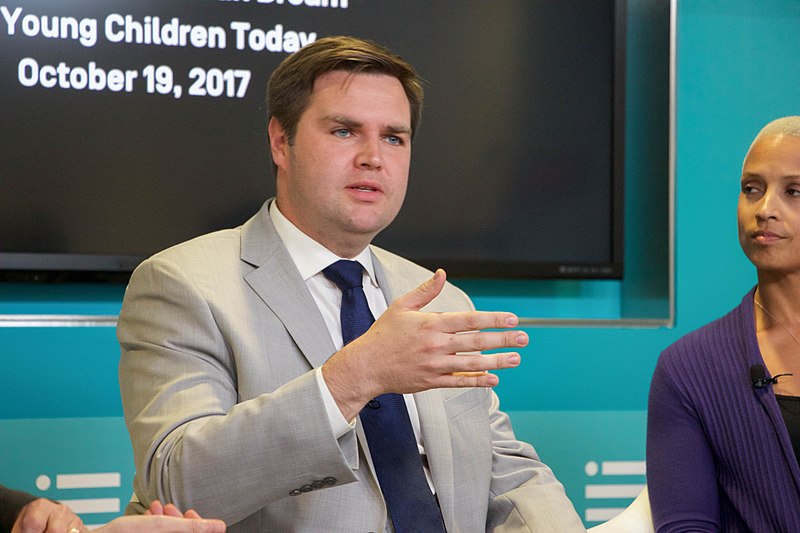Some People Should Just Die - Project 2025 and Disabilities

Trump Mocks those with Disabilities
Trump mocked a reporter at a South Carolina Rally
Trump mocked Biden's stutter at a Georgia rally
Trump’s nephew Fred Trump III wrote a book about his uncle Donald Trump, in part to advocate for people with disabilities.
Fred Trump shared troubling anecdotes from their conversations, including instances where Donald reportedly suggested that individuals with complex disabilities should simply "die" and questioned the value of supporting them financially. He emphasized that these comments reflect a cruel attitude towards people with disabilities, which he found shocking and disappointing.
All In the Family: The Trumps and How We Got This Way
-
- After I left the office, I was standing with the others near the side entrance to the West Wing when Donald’s assistant caught up with me. “Your uncle would like to see you,” she said.
- Azar was still in the Oval Office when I walked back in. “Hey, pal,” Donald said. “How’s everything going?”
- “Good,” I said. “I appreciate your meeting with us.”
- “Sure, happy to do it.”
- He sounded interested and even concerned. I thought he had been touched by what the doctor and advocates in the meeting had just shared about their journey with their patients and their own family members. But I was wrong.
- “Those people . . . ” Donald said, trailing off. “The shape they’re in, all the expenses, maybe those kinds of people should just die.”
- I truly did not know what to say. He was talking about expenses. We were talking about human lives. For Donald, I think it really was about the expenses, even though we were there to talk about efficiencies, smarter investments, and human dignity.
- I turned and walked away.
JD Vance mocks poor families in his memoir "Hillbilly Elegy"
JD Vance doesn’t care about poor families. He mocks Appalachians in his memoir “Hillbilly Elegy”, a region that overwhelmingly votes Republican.
According to this New York Times Article, JD Vance argues that the problems in his community stem more from "hillbilly culture" than from economic insecurity. While he takes pride in his roots, he believes this culture fosters social decay rather than resilience. Vance expresses particular frustration with the nonworking white poor, recalling his time as a cashier and feeling resentment towards neighbors who exploited the welfare system while seemingly enjoying luxuries like cellphones. He suggests that this disparity in lifestyles contributes to the political shift in Appalachia and the South from Democratic to Republican, highlighting how the visible benefits of government assistance create a sense of injustice among those who work hard.

JD Vance talks at Small Talks DC - New America, CC BY 2.0 <https://creativecommons.org/licenses/by/2.0>, via Wikimedia Commons
In an opinion piece by an Appalachian writer, the author critiques JD Vance’s portrayal of the region in "Hillbilly Elegy," arguing that it reinforces negative stereotypes about Appalachians as lazy and self-blaming for their issues like unemployment and addiction. The piece contends that Vance’s comments, particularly regarding food stamp recipients, allow both liberals and conservatives to dismiss Appalachia as hopeless. The author calls for a true representative of Appalachian people—one who wouldn’t accept funding from pharmaceutical companies linked to the opioid crisis, deny climate change amid ongoing environmental disasters, or foster anti-immigrant sentiment, given that immigrants play vital roles in local industries. Instead, the piece advocates for unity and solidarity in addressing the region's challenges.
This is in reference to JD Vance’s anti-drug charity called Our Ohio Renewal, which he founded a day after the 2016 presidential election. An AP review found that the charity’s most notable accomplishment — sending an addiction specialist to Ohio’s Appalachian region for a yearlong residency — was tainted by ties among the doctor, the institute that employed her and Purdue Pharma, the manufacturer of OxyContin.
In the 2016 Mandate, Blueprint for a New Administration, they wanted to Eliminate Non-Medical Factors in the Disability Determination Process
What are non-medical factors?
IDEA (Individuals with Disabilities Act)
Project 2025 proposes significant changes to the Individuals with Disabilities Education Act (IDEA), advocating for its transfer from the Department of Education to the Department of Health and Human Services. This move aims to shift the focus of disability education services, potentially impacting the support available to students. Additionally, the initiative suggests allowing families to enroll disabled individuals in private schools under specific conditions. However, this proposal drastically underestimates the financial resources required to secure adequate private tutoring for disabled students, recommending a mere $1,800 as sufficient for an entire year of tutoring. In reality, quality tutoring services often far exceed this amount, raising concerns about accessibility and the adequacy of support for disabled learners.
Furthermore, Project 2025 highlights the underrepresentation of Black children within the IDEA framework but paradoxically advocates for the removal of regulations that take race and ethnicity into account during the identification, placement, and disciplinary processes for students with disabilities. This proposed rescission raises critical questions about equity and inclusion in educational settings, as it could hinder efforts to address systemic disparities and ensure that all students receive the appropriate support they need. By eliminating considerations of race, the initiative risks perpetuating inequities rather than fostering an inclusive environment for disabled students of diverse backgrounds.
This is especially problematic given that both of the assumptions behind Equity in IDEA are flawed. Special education services provide extra assistance to students; they do not harm them. And according to the most rigorous research on the subject, conducted by Penn State’s Paul Morgan, black students are actually underrepresented in special education once adequate statistical controls are made. That means that this regulation effectively further depresses the provision of valuable services to an already underserved group. (p. 336)
School districts deemed to overrepresent minority students in special education assignment, or in discipline amongst special education students, are tagged by their state education agencies as engaging in “significant disproportionality,” and are required to reallocate 15 percent of their IDEA Part B money into coordinated early intervening services that are intended to address the “root causes of disproportionality.” In practice, this can mean raiding special education funding to pay for CRT-inspired “equity” consultants and professional development. (p. 336)
Federal lawmakers should move IDEA oversight and implementation to the U.S. Department of Health and Human Services. Officials should then consider revising IDEA to require that a child’s portion of the federal taxpayer spending under the law be made available to families so parents can choose how and where a child learns. (p. 349)
IDEA already allows families to choose a private school under certain conditions, but federal officials should update the law so that families can use their child’s IDEA spending for textbooks, education therapies, personal tutors, and other learning expenses, similar to the way in which parents use education savings accounts in states such as Arizona and Florida. These micro-education savings accounts would give the families of children with special needs approximately $1,800 per child to help meet a child’s unique learning needs. (p. 349-350)
Over a 10-year period, the federal spending should be phased out and states should assume decision-making control over how to provide a quality education to children from low-income families (p. 350)
Effective January 18, 2017, the department issued final regulations under Part B of IDEA that require states to consider race and ethnicity in the identification, placement, and discipline of students with disabilities. The new Administration should rescind this regulation. (p. 336)